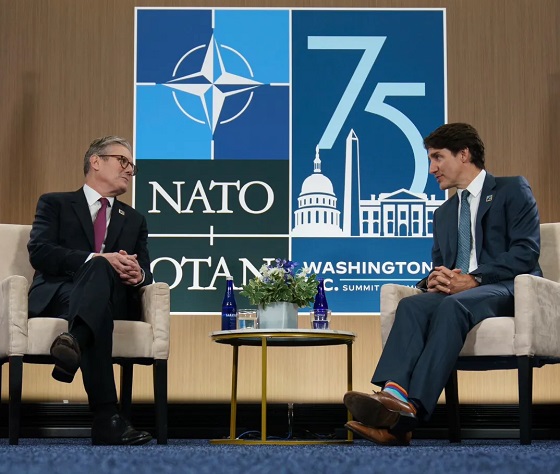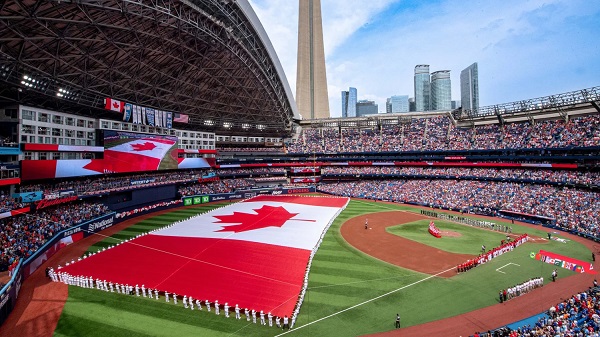Frontier Centre for Public Policy
Christmas: As Canadian as Hockey and Maple Syrup

From the Frontier Centre for Public Policy
By Gerry Bowler
Well, they’re at it again. A year after a Canadian Human Rights Commission position paper labeled Christmas “discriminatory” and an example of “colonialist religious intolerance”, an Alberta public school has cancelled a winter concert because marking Christmas isn’t inclusive enough. The principal of Whitecourt’s Pat Hardy Elementary stated, “Not all students celebrate Christmas, and their families may or may not choose to have them participate in the Christmas concert. Other families celebrate Christmas as a religious holiday but do not want children engaging in the non-religious parts such as Santa, Christmas trees, etc.” It was suggested that a spring concert might be more inclusive, presumably on the theory that no one gets too worked up about the vernal equinox.
The principal’s actions are scarcely news; for years schools and public officials have been reluctant to stage any activity around the celebration of the Nativity. “Christmas concerts” have been relabelled or cancelled; “Christmas trees” have been termed the “Holiday Tree.” Or a “Care Tree.” A “Multicultural Tree.” A “Tree of Lights.” A “Community Tree.” A “Winter Solstice Tree.” A “Grand Tree.” A “Special Tree.” A “Family Tree.” The “Annual Tree.” A “Festive Bush.” A “Unity Tree.” A “Culture Tree.” Activists in Saskatoon objected to city buses displaying a “Merry Christmas” wish; a Toronto judge ordered a Christmas tree removed from the courthouse lest it makes non-Christians feel unwelcome; inspired by the American school that mandated that the lyrics to “Silent Night” be changed to “Silent Night, mmm, mmm, mmm, / All is calm, all is bright, mmm, mmm, mmm”, a principal at an Ottawa school excised the C-word from the ditty “Silver Bells”. Thus: “Ring-a-ling, hear them sing; Soon it will be a festive day.”
There are several ways of dealing with this perennial issue. One is to remove religion from the public square altogether – that would certainly suit the secular fundamentalists – another is to play the majoritarian card and insist that since Christians outnumber other faith communities their will should hold sway. Some might want to dilute any mention of Christianity from the season while others might wish to include every other religion’s holy days on the school calendar.
I have a solution to this seasonal dilemma. It is to adopt the attitude taken by leaders of racial and religious minorities in Canada when asked if they are offended by mentions of Christmas. Their invariable answer is, of course not, Christmas is an integral part of Canadian culture.
Christmas is indeed Canadian, as native to our land as Hockey Night in Canada, Stompin’ Tom Connors, or pineapple on pizza. It has been Canadian longer than poutine, mediocre socialized healthcare, or the last time Toronto won the Stanley Cup. The Vikings who found a home in Newfoundland a thousand years ago likely celebrated Christmas, and there’s no doubt that the holiday has been observed for half a millennium by later European settlers.
Though a current American politician may regard Canada as the 51st state and a current Canadian politician may opine that we are a post-national entity with no core identity, Canada, over the centuries, has developed a unique Christmas culture. We have beautiful carols of our own – “D’où Viens-Tu Bergère?”, the “Huron Carol” (“Jesus Ahatonia”), the first ever written in a North American indigenous language, and J.P. Clarke’s 1853 “A Canadian Christmas Carol”– not to mention secular seasonal music such as “Voici Le Père Noël Qui Nous Arrive” by the legendary Mary Bolduc, the melancholy “River” by Joni Mitchell, Bob and Doug Mackenzie’s take on “The Twelve Days of Christmas” and the immortal “Honky the Christmas Goose,” as sung by Johnny Bower (the last Leaf goalie to win a Stanley Cup).
We have unique Christmas foods – the taffy pull on St Catherine’s day, the tourtière of the revéillon, rapee pie, cipâte, butter tarts, Nanaimo bars, ragoût de pattes, “chicken bones,” and “barley toys.”
Though Santa Claus has his own Canadian postal code (H0H 0H0), we do not count him as a citizen, but we do have our own native Gift-Bringer in the form of Mother Goody (also known as Aunt Nancy or Mother New Year).
Canada can boast the first Christmas tree in North America, the custom introduced by Baroness Frederika von Riedesel whose husband Baron Friedrich Adolphus von Riedesel had brought 4,000 German Brunswicker soldiers in 1776 to protect Canada from American invasion. The first department store Santa was employed in Fredericton, New Brunswick, in 1869. Our post office issued the world’s first Christmas stamp in 1898. Eaton’s department store in Toronto staged the first Santa Claus parade in 1905.
Only in Canada can we see mummers of all sorts at Christmas – Janneys, Ownshooks, Fools, Belsnicklers, and Naluyuks; only in Canada do door to-door canvassers under the guise of “la guignolée” solicit donations to charity while singing a song threatening to torture the oldest daughter of the house.
So the next time objections are raised to the appearance of Christmas in the public square, simply state that it’s a long-standing Canadian custom, sanctified by time and universal practice, as deeply embedded in our culture as the red maple leaf. It’s what we do. Canadians do Christmas.
Gerry Bowler, historian, is a Senior Fellow at the Frontier Centre for Public Policy
Education
Classroom Size Isn’t The Real Issue
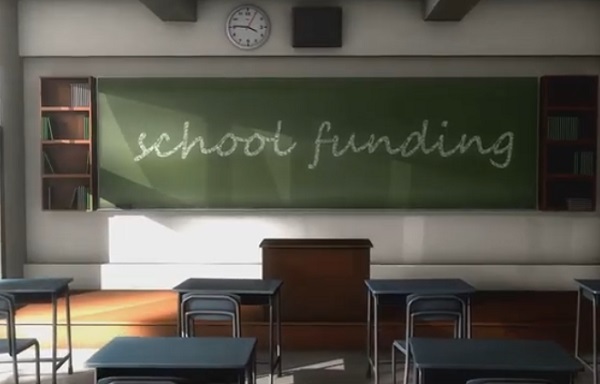
From the Frontier Centre for Public Policy
The real challenge is managing classrooms with wide-ranging student needs, from special education to language barriers
Teachers’ unions have long pushed for smaller class sizes, but the real challenge in schools isn’t how many students are in the room—it’s how complex those classrooms have become. A class with a high proportion of special needs students, a wide range of academic levels or several students learning English as a second language can be far more difficult to teach than a larger class where students are functioning at a similar level.
Earlier this year, for example, the Elementary Teachers’ Federation of Ontario announced that smaller class sizes would be its top bargaining priority in this fall’s negotiations.
It’s not hard to see why unions want smaller classes. Teaching fewer students is generally easier than teaching more students, which reduces the workload of teachers. In addition, smaller classes require hiring more teachers, and this amounts to a significant financial gain for teachers’ unions. Each teacher pays union dues as part of membership.
However, there are good reasons to question the emphasis on class size. To begin with, reducing class size is prohibitively expensive. Teacher salaries make up the largest percentage of education spending, and hiring more teachers will significantly increase the amount of money spent on salaries.
Now, this money could be well spent if it led to a dramatic increase in student learning. But it likely wouldn’t. That’s because while research shows that smaller class sizes have a moderately beneficial impact on the academic performance of early years students, there is little evidence of a similar benefit for older students. Plus, to get a significant academic benefit, class sizes need to be reduced to 17 students or fewer, and this is simply not financially feasible.
In addition, reducing class sizes means spending more money on teacher compensation (including salaries, pensions and benefits). Also, it leads to a decline in average teacher experience and qualifications, particularly during teacher shortages.
As a case in point, when the state of California implemented a K-3 class-size reduction program in 1996, inexperienced or uncertified teachers were hired to fill many of the new teaching positions. In the end, California spent a large amount of money for little measurable improvement in academic performance. Ontario, or any other province, would risk repeating California’s costly experience.
Besides, anyone with a reasonable amount of teaching experience knows that classroom complexity is a much more important issue than class size. Smaller classes with a high percentage of special needs students are considerably more difficult to teach than larger classes where students all function at a similar academic level.
The good news is that some teachers’ unions have shifted their focus from class size to classroom complexity. For example, during the recent labour dispute between the Saskatchewan Teachers’ Federation (STF) and the Saskatchewan government, the STF demanded that a classroom complexity article be included in the provincial collective agreement. After the dispute went to binding arbitration, the arbitrator agreed with the STF’s request.
Consequently, Saskatchewan’s new collective agreement states, among other things, that schools with 150 or more students will receive an additional full-time teacher who can provide extra support to students with complex needs. This means that an extra 500 teachers will be hired across Saskatchewan.
While this is obviously a significant expenditure, it is considerably more affordable than arbitrarily reducing class sizes across the province. By making classroom complexity its primary focus, the STF has taken an important first step because the issue of classroom complexity isn’t going away.
Obviously, Saskatchewan’s new collective agreement is far from a panacea, because there is no guarantee that principals will make the most efficient use of these additional teachers.
Nevertheless, there are potential benefits that could come from this new collective agreement. By getting classroom complexity into the collective agreement, the STF has ensured that this issue will be on the table for the next round of bargaining. This could lead to policy changes that go beyond hiring a few additional teachers.
Specifically, it might be time to re-examine the wholesale adoption of placing most students, including those with special needs, in regular classrooms, since this policy is largely driving the increase in diverse student needs. While every child has the right to an education, there’s no need for this education to look the same for everyone. Although most students benefit from being part of regular academic classes, some students would learn better in a different setting that considers their individual needs.
Teachers across Canada should be grateful that the STF has taken a step in the right direction by moving beyond the simplistic demand for smaller class sizes by focusing instead on the more important issue of diverse student needs.
Michael Zwaagstra is a senior fellow with the Frontier Centre for Public Policy.
Frontier Centre for Public Policy
Canada’s Democracy Is Running On Fumes

From the Frontier Centre for Public Policy
By Gerry Bowler
Prime ministerial control, weak Parliament and a dependent press have left voters with little more than a ritual trip to the ballot box
Canadians take comfort in U.S. dysfunction, but the foundations of our own democracy are already showing serious strain
Canada isn’t the strong democracy we like to believe. Behind the peaceful elections and parliamentary rituals lies a system where power is concentrated in the hands of one person: the prime minister.
Since Confederation, Canada has avoided coups and revolutions. Governments have changed hands through orderly elections, a record many countries envy. On the surface, it looks like a stable democracy.
But look closer, and the cracks show.
The 1982 Constitution enshrined a Charter of Rights and Freedoms promising equality for all, and then immediately allowed governments to override those rights with the “notwithstanding clause,” which lets legislatures pass laws even if they conflict with the Charter.
The Emergencies Act, used for the first time during the 2022 trucker protests, gives Ottawa extraordinary powers to suspend freedoms and compel action. Its use included freezing bank accounts without court orders and compelling tow truck operators to provide their services to remove the vehicles, measures that left many Canadians unsettled about how quickly their rights can be curbed.
Parliamentary practice has also made the prime minister one of the most powerful elected leaders in the world. He decides who can run under his party’s banner, when MPs may speak and who sits in cabinet. He appoints the heads of federal agencies, judges, ambassadors and senators. In theory, these powers rest with the Crown. In practice, it is the prime minister who even chooses the governor general. Unlike Britain, where leaders must contend with internal party democracy, Canadian prime ministers enforce tight discipline, leaving backbench MPs with little influence.
This isn’t just theory. Pierre Trudeau’s iron grip on his caucus, Stephen Harper’s strict message control and Justin Trudeau’s demands for near-total loyalty all show how party discipline can stifle independent voices in Parliament.
When opposition parties pose a threat, a prime minister can simply prorogue Parliament, temporarily shutting it down without dissolving it, and avoiding debate. Jean Chrétien, Harper and Trudeau have all used this tactic when pressure mounted. After an election, the first sitting can be delayed for nearly a year. Even when Parliament does sit, question period, once meant to hold governments accountable, has become little more than a trading of insults. Canadians who tune in often come away with the impression of theatre, not oversight.
Parliament’s supremacy has been further eroded by section 52(1) of the Constitution, which gives the Supreme Court power to strike down laws passed by elected representatives and create new rights and obligations in their place. Courts have struck down laws on abortion, safe-injection sites and mandatory minimum sentences, reshaping policy without a vote in the House of Commons.
Meanwhile, the press, long considered democracy’s watchdog, now relies heavily on government subsidies such as the federal media bailout program. Sold as a lifeline to preserve journalism, it has raised unavoidable questions about independence. Critics argue that when newsrooms depend on Ottawa for survival, it blunts their willingness to challenge the same government that funds them. In a country where a strong, adversarial press is essential, the appearance of influence is almost as damaging as direct control.
All of this has reduced Canadian democracy to little more than a ritual trip to the ballot box every four or five years. With power so centralized, many voters understandably wonder whether their participation matters. No surprise, then, that a third of Canadians don’t bother to vote, with even lower turnout in provincial and municipal elections.
Canadians often look south at the polarization and chaos in American politics and congratulate ourselves for avoiding the same fate. But that smugness is dangerous. The U.S. reminds us how quickly democratic institutions can fray when power is abused and trust collapses. Canada is not immune.
The warning signs are here. Keep ignoring them, and our democracy will collapse: not with a bang but with a whimper.
Gerry Bowler is a Canadian historian and a senior fellow of the Frontier Centre for Public Policy.
-

 Business1 day ago
Business1 day agoThe Grocery Greed Myth
-

 Business1 day ago
Business1 day agoTax filing announcement shows consultation was a sham
-

 Frontier Centre for Public Policy7 hours ago
Frontier Centre for Public Policy7 hours agoCanada’s Democracy Is Running On Fumes
-

 COVID-192 days ago
COVID-192 days agoTamara Lich says she has no ‘remorse,’ no reason to apologize for leading Freedom Convoy
-

 Crime2 days ago
Crime2 days agoCanada’s safety minister says he has not met with any members of damaged or destroyed churches
-
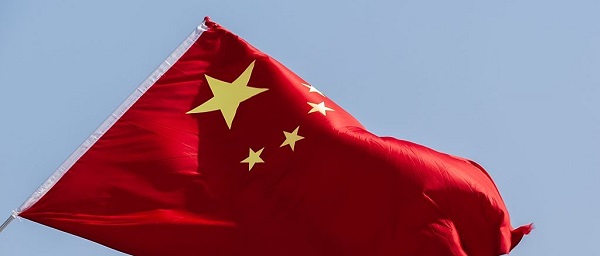
 Business2 days ago
Business2 days agoTrump Warns Beijing Of ‘Countermeasures’ As China Tightens Grip On Critical Resources
-

 International2 days ago
International2 days agoTrump gets an honourable mention: Nobel winner dedicates peace prize to Trump
-
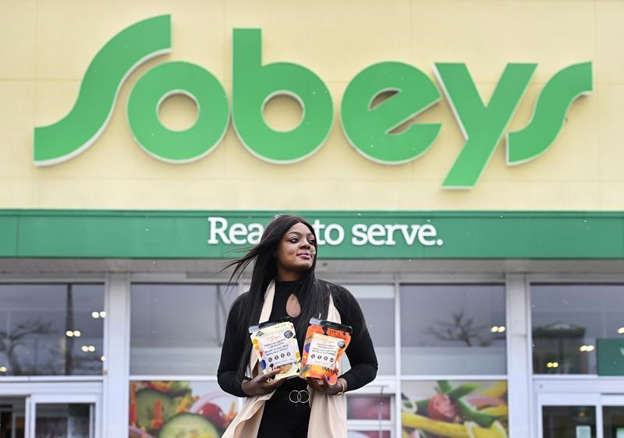
 Business8 hours ago
Business8 hours agoYour $350 Grocery Question: Gouging or Economics?

